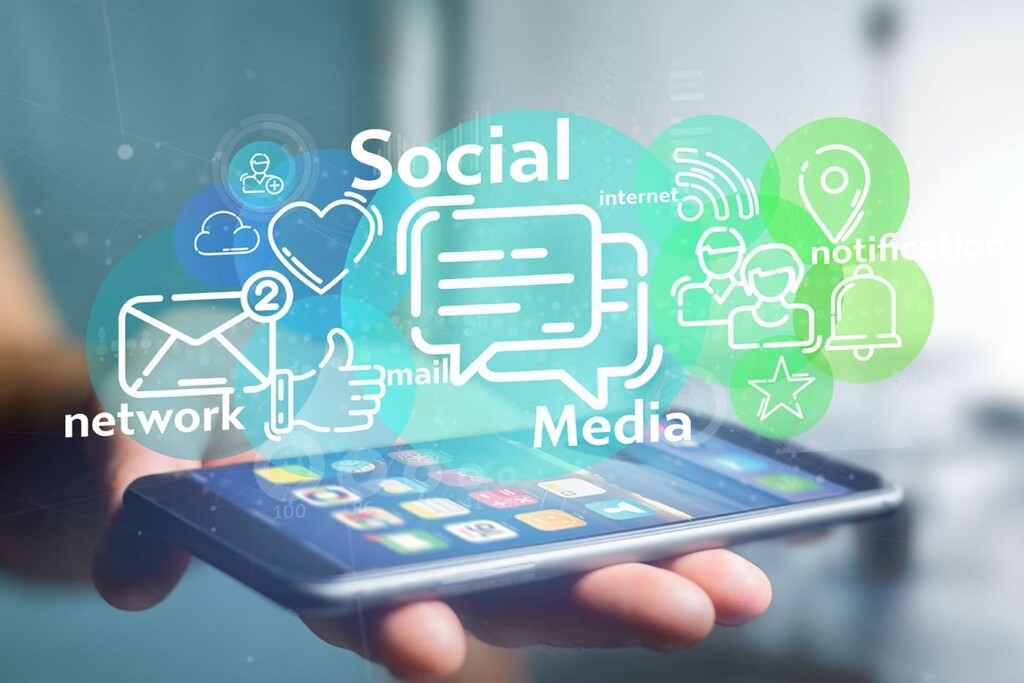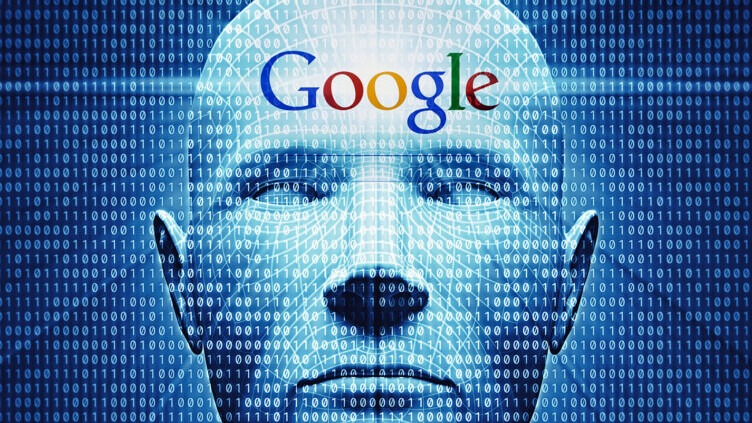Google Will Use Everything You Publish To Feed Their Generative AI
By SCARS Editorial Team – Society of Citizens Against Relationship Scams Inc.
Google’s New Privacy Policy Opens the Door to Web Scraping
Google has updated its privacy policy to allow the company to scrape any publicly available data for use in its artificial intelligence (AI) projects. This means that Google could potentially collect and analyze everything you post online, including your social media posts, blog articles, and even comments on public websites.
Google’s Update
The update to Google’s privacy policy comes at a time when there is growing concern about the use of AI for surveillance and other privacy-invasive purposes. In recent months, there have been several high-profile cases of AI being used to track people’s movements, identify political dissidents, and even predict criminal behavior.
Google’s new privacy policy raises the question of whether the company will use its AI capabilities to collect and analyze personal data without people’s knowledge or consent. Google has said that it will only collect data that is “publicly available online,” but this could still include a wide range of personal information.
For example, if you post a photo of yourself on social media, that photo could be scraped by Google and used to train its AI models. This could allow Google to identify you in other photos, even if you have not tagged yourself or made your profile private.
Google’s new privacy policy is a reminder that the internet is not a private place. Everything you post online is potentially fair game for collection and analysis by companies like Google. If you are concerned about your privacy, you should be careful about what you post online and how much personal information you share.
Real World Dangers
The real-world dangers of Google’s update to its privacy policy regarding generative AI are:
- Increased Surveillance: Google could use its AI capabilities to collect and analyze personal data without people’s knowledge or consent. This could allow Google to track people’s movements, identify political dissidents, and even predict criminal behavior.
- Discrimination: Google could use its AI models to discriminate against people based on their race, gender, or other personal characteristics. For example, Google could use its AI models to target ads to people based on their race or gender or to deny people loans or jobs based on their predicted risk of default.
- Privacy Violations: Google could use its AI models to violate people’s privacy by collecting and analyzing personal data without their knowledge or consent. This could include data such as people’s medical records, financial information, or political views.
- Misinformation: Google could use its AI models to spread misinformation and propaganda. For example, Google could use its AI models to generate fake news articles or social media posts that are designed to mislead people.
It is important to note that these are just some of the potential dangers of Google’s update to its privacy policy. It is still too early to say what the full impact of this update will be. However, it is clear that this update raises serious concerns about the privacy and security of people’s data. After all, nothing ever goes wrong with new technology releases, right?
Google Is Going After Your Social Media Profiles & Content
Google’s new privacy policy update would allow it to scrape social media profiles and do anything it wants with what it finds!
The update states that Google can collect “information that’s publicly available online” to help train its AI models. This includes information that is publicly available on social media profiles, such as your name, profile picture, and posts – and also your children’s photos.
Google has said that it will only collect data that is “publicly available online,” but this could still include a wide range of personal information. For example, if you post a photo of yourself on social media, that photo could be scraped by Google and used to train its AI models. This could allow Google to identify you in other photos, even if you have not tagged yourself or made your profile private.
It is important to note that Google has not yet announced any specific plans to scrape social media profiles. However, the update to its privacy policy makes it clear that the company has the ability to do so. If you are concerned about your privacy, you should be careful about what information you share on social media.
Here are some tips for protecting your privacy on social media:
- Make your profile private. This will prevent people from seeing your profile and posts unless they are your friends or followers.
- Be careful about what information you share. Do not share any personal information that you do not want to be public.
- Use strong passwords and two-factor authentication. This will help to protect your account from unauthorized access.
- Be aware of the privacy settings on the social media platforms you use. Make sure you understand what information is being shared and with whom.
By following these tips, you can help to protect your privacy on social media and prevent Google from scraping your data.
What About Google Drive Documents?
Google’s new privacy policy update could allow it to access Google Drive documents.
The update states that Google can collect “information that’s publicly available online” to help train its AI models. This includes information that is publicly available in Google Drive, such as the names of your documents and the folders they are in. And if a document is publicly shared (anyone with a link), it could include the contents of those documents.
Google has said that it will only collect data that is “publicly available online,” but this could still include a wide range of personal information. For example, if you have a document in Google Drive that contains your name, address, or other personal or business information, that information could be scraped by Google and used to train its AI models. This could be a major trade secret concern for enterprises.
It is important to note that Google has not yet announced any specific plans to access Google Drive documents. However, the update to its privacy policy makes it clear that the company has the ability to do so.
And Google’s Gmail?
Google’s new privacy policy update could allow it to access Gmail emails and attachments.
The update states that Google can collect “information that’s publicly available online” to help train its AI models. This includes information that is publicly available in Gmail, such as the subject lines of your emails and the names of the people you email. Did you know that Google considers these as public information?
Google has said that it will only collect data that is “publicly available online,” but this could still include a wide range of personal information. For example, if you have an email in Gmail that contains your name, address, or other personal information, that information could be scraped by Google and used to train its AI models.
Can You Protect Yourself From Google?
Here are some things you can do to protect yourself from the dangers of Google’s update to its privacy policy:
- Be careful about what information you share online.
- Use privacy-focused browsers and extensions.
- Read the privacy policies of the websites you visit.
- Contact your elected officials and let them know that you are concerned about Google’s update to its privacy policy.
By taking these steps, you can help to protect your privacy and security online.
Clarification
We hope that in the coming months that there will be sufficient backlash that Google will refine its policy to make it more precise about what it considers public information online and on its own apps.
More ScamsNOW.com Articles
-/ 30 /-
What do you think about this?
Please share your thoughts in a comment below!
SCARS LINKS: AgainstScams.org RomanceScamsNOW.com ContraEstafas.org ScammerPhotos.com Anyscam.com ScamsNOW.com
reporting.AgainstScams.org support.AgainstScams.org membership.AgainstScams.org donate.AgainstScams.org shop.AgainstScams.org
youtube.AgainstScams.org linkedin.AgainstScams.org facebook.AgainstScams.org
TABLE OF CONTENTS
CATEGORIES
![NavyLogo@4x-81[1] Google Updated Its Privacy Policy To Include AI](https://scamsnow.com/wp-content/uploads/2025/04/NavyLogo@4x-811.png)
ARTICLE META
Important Information for New Scam Victims
- Please visit www.ScamVictimsSupport.org – a SCARS Website for New Scam Victims & Sextortion Victims.
- SCARS Institute now offers its free, safe, and private Scam Survivor’s Support Community at www.SCARScommunity.org – this is not on a social media platform, it is our own safe & secure platform created by the SCARS Institute especially for scam victims & survivors.
- SCARS Institute now offers a free recovery learning program at www.SCARSeducation.org.
- Please visit www.ScamPsychology.org – to more fully understand the psychological concepts involved in scams and scam victim recovery.
If you are looking for local trauma counselors, please visit counseling.AgainstScams.org
If you need to speak with someone now, you can dial 988 or find phone numbers for crisis hotlines all around the world here: www.opencounseling.com/suicide-hotlines
Statement About Victim Blaming
Some of our articles discuss various aspects of victims. This is both about better understanding victims (the science of victimology) and their behaviors and psychology. This helps us to educate victims/survivors about why these crimes happened and not to blame themselves, better develop recovery programs, and help victims avoid scams in the future. At times, this may sound like blaming the victim, but it does not blame scam victims; we are simply explaining the hows and whys of the experience victims have.
These articles, about the Psychology of Scams or Victim Psychology – meaning that all humans have psychological or cognitive characteristics in common that can either be exploited or work against us – help us all to understand the unique challenges victims face before, during, and after scams, fraud, or cybercrimes. These sometimes talk about some of the vulnerabilities the scammers exploit. Victims rarely have control of them or are even aware of them, until something like a scam happens, and then they can learn how their mind works and how to overcome these mechanisms.
Articles like these help victims and others understand these processes and how to help prevent them from being exploited again or to help them recover more easily by understanding their post-scam behaviors. Learn more about the Psychology of Scams at www.ScamPsychology.org
SCARS INSTITUTE RESOURCES:
If You Have Been Victimized By A Scam Or Cybercrime
♦ If you are a victim of scams, go to www.ScamVictimsSupport.org for real knowledge and help
♦ SCARS Institute now offers its free, safe, and private Scam Survivor’s Support Community at www.SCARScommunity.org/register – this is not on a social media platform, it is our own safe & secure platform created by the SCARS Institute especially for scam victims & survivors.
♦ Enroll in SCARS Scam Survivor’s School now at www.SCARSeducation.org
♦ To report criminals, visit https://reporting.AgainstScams.org – we will NEVER give your data to money recovery companies like some do!
♦ Follow us and find our podcasts, webinars, and helpful videos on YouTube: https://www.youtube.com/@RomancescamsNowcom
♦ Learn about the Psychology of Scams at www.ScamPsychology.org
♦ Dig deeper into the reality of scams, fraud, and cybercrime at www.ScamsNOW.com and www.RomanceScamsNOW.com
♦ Scam Survivor’s Stories: www.ScamSurvivorStories.org
♦ For Scam Victim Advocates visit www.ScamVictimsAdvocates.org
♦ See more scammer photos on www.ScammerPhotos.com
You can also find the SCARS Institute’s knowledge and information on Facebook, Instagram, X, LinkedIn, and TruthSocial
Psychology Disclaimer:
All articles about psychology and the human brain on this website are for information & education only
The information provided in this and other SCARS articles are intended for educational and self-help purposes only and should not be construed as a substitute for professional therapy or counseling.
Note about Mindfulness: Mindfulness practices have the potential to create psychological distress for some individuals. Please consult a mental health professional or experienced meditation instructor for guidance should you encounter difficulties.
While any self-help techniques outlined herein may be beneficial for scam victims seeking to recover from their experience and move towards recovery, it is important to consult with a qualified mental health professional before initiating any course of action. Each individual’s experience and needs are unique, and what works for one person may not be suitable for another.
Additionally, any approach may not be appropriate for individuals with certain pre-existing mental health conditions or trauma histories. It is advisable to seek guidance from a licensed therapist or counselor who can provide personalized support, guidance, and treatment tailored to your specific needs.
If you are experiencing significant distress or emotional difficulties related to a scam or other traumatic event, please consult your doctor or mental health provider for appropriate care and support.
Also read our SCARS Institute Statement about Professional Care for Scam Victims – click here
If you are in crisis, feeling desperate, or in despair, please call 988 or your local crisis hotline – international numbers here.
More ScamsNOW.com Articles
A Question of Trust
At the SCARS Institute, we invite you to do your own research on the topics we speak about and publish. Our team investigates the subject being discussed, especially when it comes to understanding the scam victims-survivors’ experience. You can do Google searches, but in many cases, you will have to wade through scientific papers and studies. However, remember that biases and perspectives matter and influence the outcome. Regardless, we encourage you to explore these topics as thoroughly as you can for your own awareness.

























![scars-institute[1] Google Updated Its Privacy Policy To Include AI](https://scamsnow.com/wp-content/uploads/2025/04/scars-institute1.png)

![niprc1.png1_-150×1501-1[1] Google Updated Its Privacy Policy To Include AI](https://scamsnow.com/wp-content/uploads/2025/04/niprc1.png1_-150x1501-11.webp)